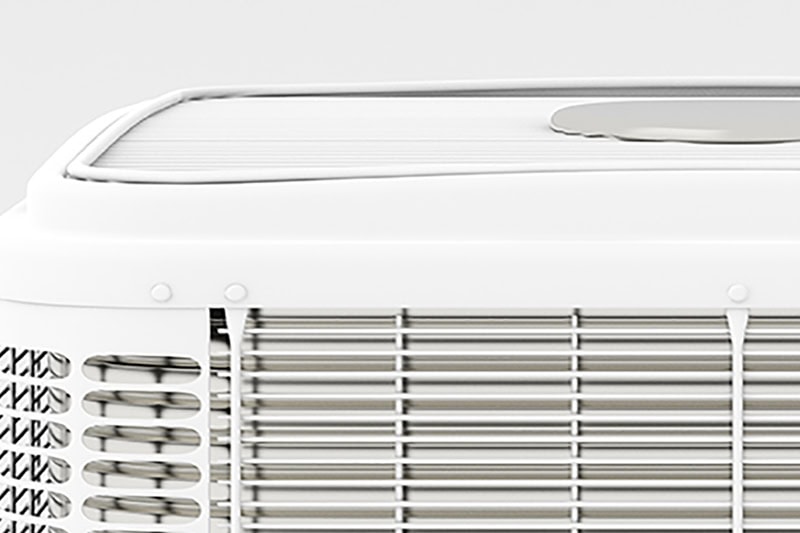Why Is My AC Blowing Warm Air? Troubleshooting Tips and Solutions

There’s nothing quite as frustrating as switching on your AC during a sweltering day in Egg Harbor Township, only to be met with a blast of warm air. Yikes! If your home feels more like a sauna than a sanctuary, don’t sweat it (literally).
The good news is that there are some common reasons this might be happening—and many of them are fixable without a technician.
In this blog, Broadley’s Plumbing, Heating & Air Conditioning walks you through the most likely culprits behind your AC’s hot air rebellion, plus simple troubleshooting tips you can try before picking up the phone to call us. Whether it’s a sneaky thermostat setting, a clogged filter, or something a little trickier, we’re here to help you get back to cool, crisp comfort in no time.
Why Is My AC Blowing Warm Air?
Let’s explore the most common reasons your AC might stop blowing cold air, get tips for troubleshooting, and find out when it’s time to call the pros at Broadley’s Heating & Air Conditioning for expert AC repair.
1. Thermostat Issues
Before assuming there’s a mechanical problem, check your thermostat. It’s surprisingly easy for it to be set incorrectly.
What to Check:
- Make sure the thermostat is set to cool and not heat or fan only.
- Double-check that the temperature is set lower than the current room temperature.
- If you have a programmable thermostat, ensure the schedule hasn’t changed or been reset.
When to Call Broadley’s:
If the display is blank or unresponsive, or the settings seem to change on their own, it might be time to replace the thermostat or have it professionally calibrated.
2. Clogged Air Filters
A dirty or clogged air filter restricts airflow, which can cause your AC to underperform—or stop cooling entirely. Restricted airflow can also lead to frozen coils, which further impairs the system’s ability to produce cold air.
What to Check:
- Locate the air filter (usually in the return vent or near the air handler).
- If it looks dirty or hasn’t been changed in more than 1-3 months, replace it with a new one.
When to Call Broadley’s:
If replacing the filter doesn’t restore cool airflow, the issue might have already affected other system components.
3. Low Refrigerant Levels
Your AC system needs the right amount of refrigerant to cool the air. If it’s blowing warm, low refrigerant could be the culprit—often caused by a leak.
Signs of Low Refrigerant:
- AC is running but not cooling effectively.
- Hissing or bubbling sounds from the system.
- Ice buildup on the refrigerant line or evaporator coil.
What You Can Do:
Refrigerant is not something homeowners can check or refill themselves—it requires EPA certification.
When to Call Broadley’s:
If you suspect low refrigerant, shut off your system and contact a professional right away. We’ll diagnose the issue, repair any leaks, and recharge your system with the correct refrigerant levels to restore proper cooling.
4. Dirty or Frozen Evaporator Coils
Your evaporator coils absorb heat from the air, but when they’re dirty or frozen, they can’t do their job. The result? Warm air instead of cold.
What to Check:
- If you can access your indoor unit, look for ice buildup on the coils.
- Ensure vents are open and unblocked and the air filter is clean to promote proper airflow.
When to Call Broadley’s:
Thawing frozen coils or cleaning dirty ones is a job best left to trained technicians. Trying to clean coils yourself can lead to accidental damage.
5. Electrical or Circuit Issues
Your air conditioner relies on multiple components working in harmony. If there’s an issue with the outdoor condenser unit (such as a tripped breaker or faulty capacitor), the indoor unit may still run without cooling.
What to Check:
- Check your electrical panel for tripped breakers and reset if necessary.
- Listen for the outdoor unit—if it’s not running at all, that’s a red flag.
When to Call Broadley’s:
Electrical issues can be dangerous and should always be addressed by a licensed technician.
6. Ductwork Leaks or Blockages
If your ductwork has leaks or blockages, the cool air might never reach your living spaces, or it could mix with warm attic air before it does.
What to Check:
- Feel for airflow differences between rooms.
- Inspect visible ductwork in basements or attics for signs of wear, disconnection, or damage.
When to Call Broadley’s:
Broadley’s offers air duct inspections and sealing services to ensure the efficiency and effectiveness of your entire system.
Need Emergency AC Services?
If your system is still blowing warm air after trying the tips above, call us. Our expert technicians are available after business hours and on weekends to restore your home comfort quickly and affordably.
Prevent Warm Air Problems With Regular HVAC Maintenance
Many of the common issues that cause your air conditioner to blow warm air can be prevented or minimized with regular AC maintenance. That’s why Broadley’s offers HVAC maintenance services throughout South Jersey.
Our expert technicians inspect, clean, and tune up your system to ensure it runs efficiently all season long. From checking refrigerant levels and cleaning coils to testing electrical connections and thermostat performance, we cover all the bases to keep your system in top shape.
Routine maintenance helps avoid surprise breakdowns, improves indoor comfort, extends the lifespan of equipment, and lowers energy bills. Whether you have a central air system, heat pump, or ductless mini split, Broadley’s has the experience and comprehensive maintenance plans to keep your Egg Harbor Township home cool and comfortable when it matters most.
Don’t Sweat It—Broadley’s Has You Covered
Troubleshooting an AC blowing warm air can be tricky—but fixable. When the fix is outside of your ability, call us for reliable AC repairs.
Schedule your AC service today with Broadley’s Plumbing, Heating & Air Conditioning —call 609-300-1921, or request service online.
